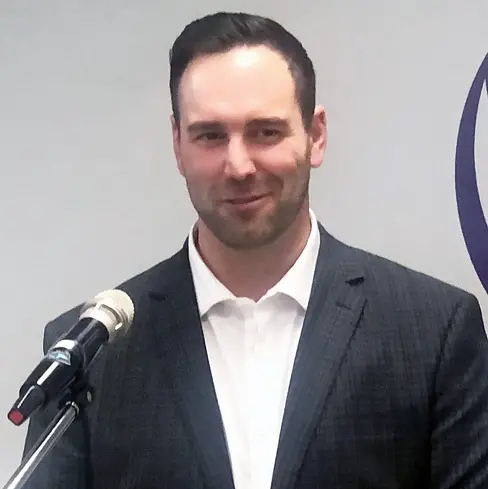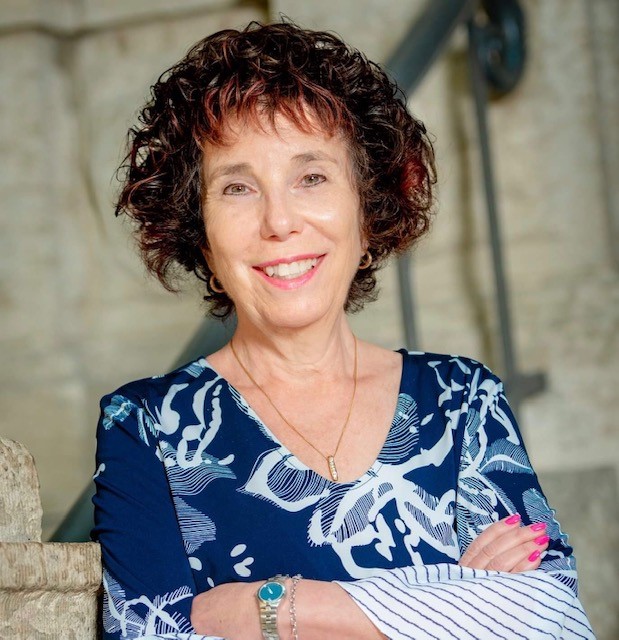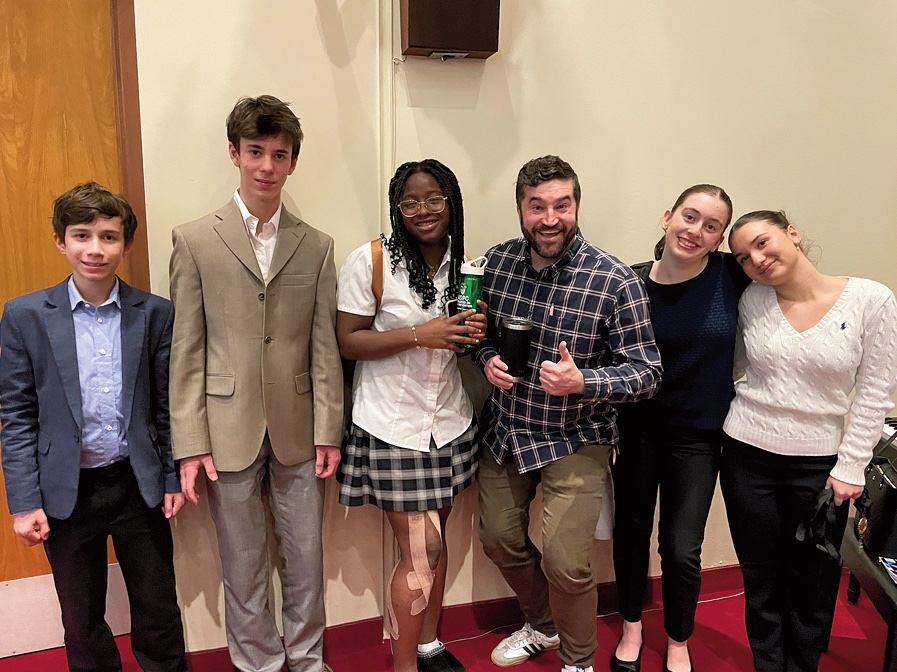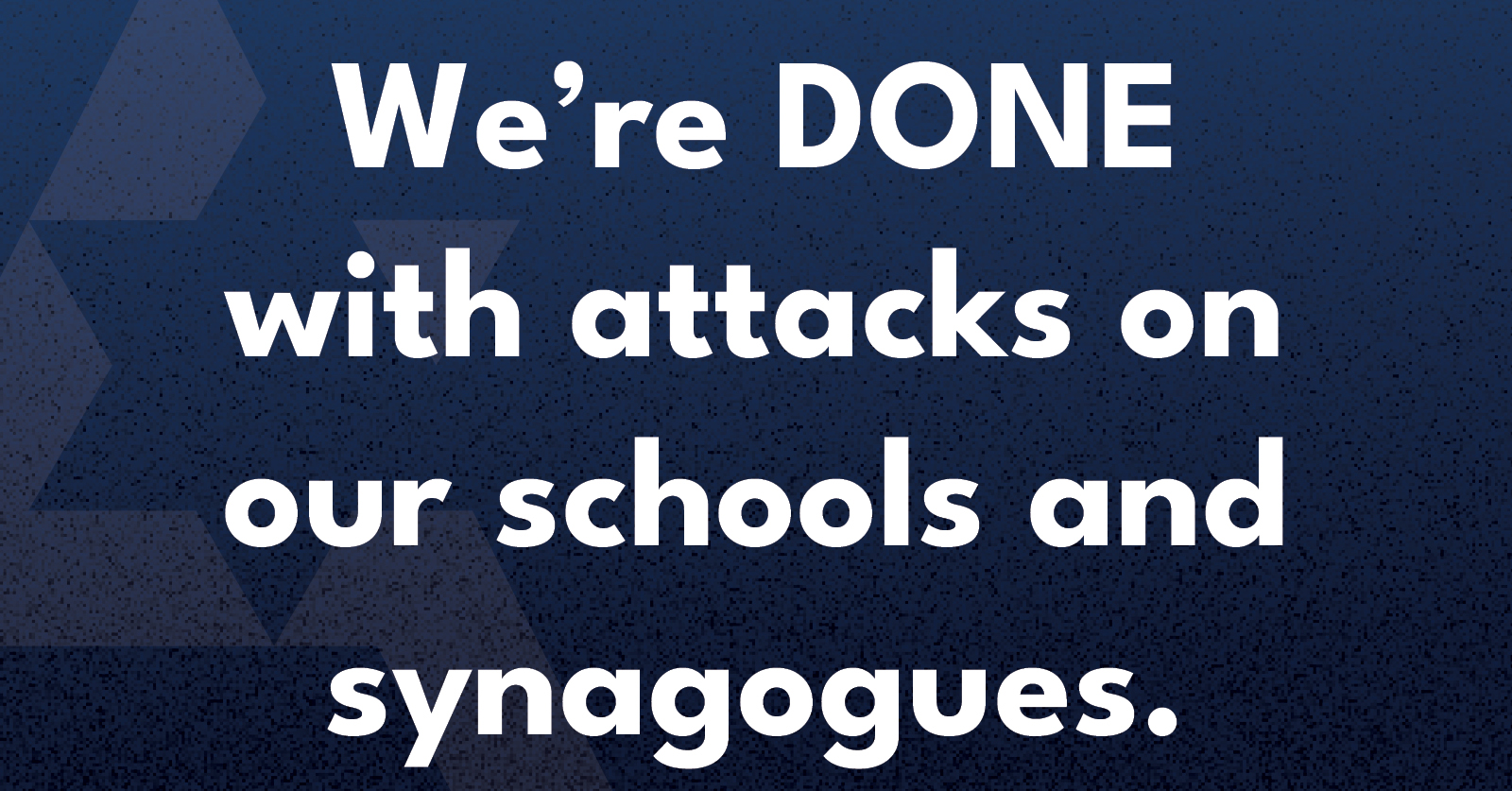Local News
Ben Carr answers questions at Gwen Secter Centre about his candidacy for the Liberals in Winnipeg South Centre

By BERNIE BELLAN It might have seemed an odd venue for a candidate in a federal byelection in to be grilled about his candidacy, but on Thursday, May 18, Liberal candidate for Winnipeg South Centre Ben Carr (in a byelection that will take place on June 19) faced a series of tough questions from audience members at the Gwen Secter Centre (which is in the north end) who were there for the second session of the Remis luncheon series.
As a preamble, I should note that Ben Carr was invited to speak to the Remis luncheon group well before the byelection was called in Winnipeg South Centre. Just as I have written about other speakers who have appeared at a Remis luncheon (and elsewhere in this paper you can read my account of the first of this years’ speakers, Joan Druxman, who spoke on May 11), I decided to write about Ben Carr’s appearanc at a Remis forum.
Ben Carr is the 37-year-old son of the late Jim Carr and Dr. Ruth Simkin. I have to make an admission at this point: I’ve known Carr ever since he was a classmate of my daughter Shira, beginning in Grade 7. That didn’t stop me, however, from throwing some pointed questions at him.
When he got up to speak Carr joked that he had been out campaigning recently in Tuxedo and when he knocked on people’s doors at least four individuals told him that they were related to him (which came as no surprise to him, he said, since he’s found through the years that both the Carr and Simkin families have many relatives in Winnipeg – and elsewhere).
Still, being the son of a famous politician, whose mantle he is now trying to adopt, has its pros and cons. I asked him, for instance, whether he’s encountered people who have accused him of capitalizing on his father’s name in running for the Liberals in the same riding that Jim Carr held for seven years until his untimely death last December?
Carr said “no,” that hasn’t been brought up to him personally.
“I recognize that I was gifted a set of principles by my parents,” he said. “You don’t choose where you come from, but you choose what you do with that.”
Someone else asked Carr whether he had ever been to Israel? He said that he had, when he was 24, when he was on a Birthright trip there – and had his bar mitzvah at the Kotel (Western Wall).
How that came about was an amusing story. Carr said that there were two rules all members of Birthright were supposed to follow: Stick with the group always and no drinking.
But, one time when the group was in Jerusalem, he and his cousin Joel decided to venture away from the group at one point, he explained. They came across someone who “looked like a rabbi,” Carr recalled. (To be honest, how hard is it to find someone who looks like a rabbi in Jerusalem?) They asked the individual whether he was a rabbi and when the man said he was, Carr said that he would like to be bar mitzvah’d.
The rabbi said to Carr and his cousin, “Okay, if you’re going to be bar mitzvah’d we’re going to the Kotel” and that’s where Carr was bar mitzvah’d.
As well, the rabbi happened to have a bottle of vodka, Carr added, which led to him and his cousin breaking the second Birthright rule.
And, although he’s relatively young, Carr has already had a varied career. After graduating from the French Immersion program at Kelvin, Carr became a teacher, he said, later a principal at Maples Met High School which, he explained, has an innovative program whereby some students attend school three days a week, and apprentice in a workplace the other two days.
Most recently Carr has been Vice President of something called the Indigenous Strategy Alliance, working in tandem with an Indigenous woman by the name of Rebecca Chartrand. He described their relationship as “what reconciliation should look like.”
Of course, growing up in a household immersed in politics (Jim Carr was first elected as an MLA in 1988, Carr pointed out, as part of the resurgent provincial Liberal showing led by then-leader Sharon Carstairs), he has had more than his share of exposure, both to campaigning and the day to day workings of government.
In 2015, when Jim Carr was elected to the House of Commons for the first time, Ben went along with his father to live with him in Ottawa for four months. Later, Ben held various positions in the federal government, including serving as Director of Parliamentary Affairs to the Minister of Canadian Heritage.
Still, while Winnipeg South Centre has been a Liberal-held seat for the past eight years, it has also been won by Conservatives in the past, most recently by Joyce Bateman (in 2011).
Carr said that “there are three issues I’m most proud of”: The national child care program, “which has lifted 450,000 kids out of poverty;” the government’s position on climate change where, he said, the government has found “a good balance;” and the national day care plan, “which is going to help women get back in the work force.”
He added that the government has introduced “changes in support for seniors,” including “dropping the age of eligibility to receive the Old Age Pension from 67 to 65 and increasing the Old Age Supplement.”
I said to Carr that there are two other issues that clearly distinguish the Liberals from the Conservatives: gun control and abortion. Since gun control was not likely to be an issue in Winnipeg South Centre though, I wondered whether abortion has been brought up to him since he’s been out knocking on doors?
He answered: “For us, this (abortion) was settled a long time ago. You cannot be a candidate for the Liberal Party of Canada unless you stand for a woman’s right to choose. I don’t know where my opponents stand on abortion, but I’d like to hear from them.”
Someone else asked him who else is running in the byelection? Carr said that the Conservative candidate is Damir Stipanovic, the NDP candidate is Julia Riddell, and the Green Party candidate is Doug Hemmerling. (Given how important the Jewish vote is in Winnipeg South Centre and how many of our readers live in the riding, we will try to profile each of the three other candidates in the June 7 issue.)
Someone wondered whether Carr had encountered any anti-Semitism while on the campaign trail? He said that he hadn’t, but he did offer an anecdote that illustrated how prejudice can work both ways.
One time when Ben was out campaigning for his father in River Heights, he said, he was confronted by a woman when he knocked on her door, he said, who told him that Justin Trudeau was an “antisemite.”
The reason she felt that way, Carr explained, was that Trudeau “had let so many Muslims into the country.”
That led me to ask Carr whether he has had anyone tell him that they’re not happy with the Liberal position on Israel, (e.g., either voting for or abstaining during votes on resolutions at the UN which are critical of Israel)?
Carr was adamant that the “Liberal government has been equal to or better than the Harper government was.” (It’s somewhat fitting that in this same issue we devote a fair bit of space to what Stephen Harper had to say about Israel at the Negev Gala.)
He went on to say that there is “an attempt within the Conservative movement in Canada to position itself as the only defender of Israel within the House of Commons.
“There is a little bit of a misconception when it comes to the Liberal Party’s position on Israel,” Carr continued.
“The fundamental principle is that Israel has a right to exist and is the homeland of the Jewish people,” he said.
Turning once again to the Conservative Party, Carr said the Conservative Party today is not the Progressive Conservative Party of “Joe Clark and Brian Mulroney.
“What Pierre Poilievre is trying to leverage,” Carr maintained, “ is the worst in us – and combining it with a kind of populism to turn us against one another.
“The vast majority of Conservatives that I talk to in Winnipeg South Centre identify with the PC Party.”
Carr brought up something that had been posted to the Damir Stipanovic website, (votedamir.ca) but has apparently been expunged, but not before someone had captured a screenshot of what was written:
“It is becoming increasingly clear that the Trudeau Liberals benefitted from corruption and interference in the 2019 and 2021 elections. Leaks from the Canadian Security Intelligence Service (CSIS) indicate that the Trudeau Liberals were aware of alarming reports and did not respond to the threats.
“An open and transparent public inquiry is now needed. With Winnipeg South Centre heading into a by-election, how do we know that the Chinese Communist Party is not funding Ben Carr and the Liberal party in this very riding?”
As noted, we will attempt to contact each of the three other candidates in Winnipeg South Centre in time for our June 7 issue, including Damir Stipanovic, whom we will also ask about the question posed on his website.
Local News
Cheryl Hirsch Katz, Jewish Child and Family Service’s longest serving staffer, set to retire at end of the month

By MYRON LOVE “I loved working at Jewish Child and Family Service,” says Cheryl Hirsh Katz, who is due to retire at the end of June. “I have always appreciated the warm and welcoming atmosphere here. I feel that the people working here are my extended family. I am going to miss my colleagues”.
“I have derived great satisfaction over the years to have been able to help many people in our community of all ages through my work at JCFS,” she continues.
After 44 years at the agency, Katz, the longest-serving member of the staff, was given an appreciative send-off at the JCFS’s recent (June 23) Annual General Meeting at the Shaarey Zedek Synagogue.
The daughter of Art and Bess Hirsh, Cheryl grew up in Garden City. She attended Peretz School, then Jefferson Junior High and Garden City Collegiate. She joined the staff of JCFS in 1981, shortly after receiving her Bachelor of Social Work degree.
She earned an MSW in 1990.
“I chose to become a social worker,” she recalls, “because I always wanted to be able to help people.”
Katz was originally hired by JCFS to work with newcomers. After a couple of years, she was given responsibility for looking after the needs of older adults.
“I really enjoyed working in older adult services,” she says. “That is where I spent the bulk of my time at JCFS.”
After ten years as a case worker, she was promoted to a supervisory role. Later, she was also given responsibility for mental health and addictions programming and settlement services, while keeping the older adult files under her purview.
“As a supervisor, I wasn’t directly involved with individual clients,” she points out. “I was more involved with programming. Among the programs for seniors we organized were – for example – sessions on elder abuse, digital storytelling and memory loss.”
She notes that one of the trends she has seen over the last 44 years is that people are living longer and living in their homes longer. A lot more of our clients are living well into their 90s,” she observes. “We have had to continually expand our staff and the services we provide in order to accommodate the growing demands of an aging population.”
She also spoke of the mental health needs of seniors and aging Holocaust survivors.
She says that she has mixed feelings about leaving JCFS. “After so many years working full time, I am going to have to create a new routine,” she comments.
She notes that, now that she is retired, she will have more time to spend with her parents – who are in their 90s.
And then, there are the two dogs to look after. “I will have time now to try new activities,” she says. “ I might learn to play mah-jong.”
She speaks about maybe doing some traveling – although her husband, Murray, is still working full time.
(She and Murray have one daughter, Farah.)
“Retirement may also include some volunteering,” she adds.
It is quite likely, she will be continuing her association with JCFS but in a volunteer capacity.
Local News
Gray Academy students shine in provincial, national debating competitions

By MYRON LOVE It has been another good year for Gray Academy’s high school students who participated in provincial and national debating competitions. The best results were recorded by Grade 9 student Noa Mednikov, who finished fourth overall nationally, fourth in interpretive reading, and fifth in persuasive speaking at the junior National Public Speaking Championship in early May in Vancouver.
Last October, in the Junior Provincial British Parliamentary Championship – which was held at St. John’s-Ravenscourt – Noa and her partner, Raya Braunstein, finished third as a team while Raya placed third in individual debating.
Their fellow Grade 9 student Maxim Moscalenkov tied for first in persuasive speaking in Vancouver, while the Gray Academy team of Gabe Tapper and Aaron Koplovich finished fifth. Aaron also finished fifth in his individual debate.
Earlier, in March, Maxim finished fifth in the Provincial Juniors debating competition, which was held at Balmoral Hall He and his debate partner, Nate Shenkarow, finished seventh among the teams entered. Last November, he and partner, Ethan Tenenbein, finished seventh in the Junior Prepared Tournament – just behind the Gray Academy team of Nate Shenkarow and Jack Kay.
At the senior high level in that competition, the team of Jacob Tenenbein and Jonah Novoseller finished fourth and Jacob was recognized as fifth best in an individual capacity. Jonah and Jacob also paired up to win the Asper Cup, which was held at their home school.
Jacob represented Manitoba at the Junior National Speech Championship in Vancouver in May and, last October, he and Grade 12 Gray Academy students Julie Krozkin and Daniel Bokser represented Canada at an international debating tournament in Bermuda.
Gray Academy’s debating program was introduced by Linda Martin in 2003. She also led the debating teams at Balmoral Hall. In 2011, Martin was succeeded by Gray Academy high school English teacher Andrew Kaplan.
“Andrew has done a wonderful job with the debating program” says Martin, who has a debating trophy at Gray Academy named in her honour, as well as a provincial trophy for best individual junior debater. “Over the years, Gray Academy students have done very well in many local, national and international competitions,” she adds.
About three weeks ago, this writer had the opportunity to sit down with Andrew Kaplan and six of the school’s top debaters while they discussed the benefits of learning how to debate. According to Noah Strauss – who competed in the Junior Provincials at Balmoral Hall in March, public speaking leaves him with a feeling of accomplishment.
“It’s a good skill set to have,” he observes. “It builds confidence.”
“A benefit of being able to debate is that you learn how to convince people that you know what you are talking about,” adds Maxim Moscolenkov.
Raya Braunstein notes that being able to debate is a skill that she expects to be helpful in many university courses which she may choose to take.
As Andrew Kaplan notes, the ability to express yourself has a great impact in whatever career you choose to pursue.
He points out that debating is compulsory at Gray Academy for all Grade 7 and 8 students – and students can continue debating as an option in the higher grades
Of course, competitive debating is not for everyone. For those students who opt to take that path, the journey begins with internal school debate competition – with the top debating teams and individuals qualifying for local tournaments and – potentially – beyond.
Andrew Kaplan reports that a small number of high schools in Winnipeg and southern Manitoba have active debating programs – including St. Johns Ravenscourt, St. Paul’s High School, St. Mary’s Academy, Garden City and Maples Collegiates in the Seven Oaks School Division, St. Maurice (a Catholic School), as well as Morden Collegiate and Dasmesh, a Sikh private school.
Kaplan expresses his appreciation to the Asper Foundation and an endowment spearheaded by the Kives Family for providing funding for the Gray Academy debating program – as well as the Andrew Slough Foundation – which was established by his friends in memory of the outstanding former Ravenscourt student debater and lawyer who passed away suddenly two years ago at the still young age of 38.
I am confident that our Jewish community can look forward to the continued success of Gray Academy’s star debaters and to the continual emergence of future stars as the times goes by.
Local News
Antisemitism has crept into grade school in Canada

Antisemitism in Canada has moved beyond protests and politics; it is now entering classrooms and altering how Jewish children see themselves functioning within them.
A a university student I have observed the experience of my younger brother in grade eight as a Jewish student. Over the past few months, his school has been at the center of several deeply troubling incidents that have made him feel unsafe in our parks, community, and even his school. Swastikas were drawn around the community, in parks and ponds. Additionally, an older man, who claims to be a pro-Palestinian influencer, stood outside his predominantly Jewish school wearing a keffiyeh, filming a video which then circulated between students on TikTok.
This same man later showed up to our local Jewish community center in keffiyeh to allegedly watch his son play basketball where my brother and many of his classmates go for their lessons, basketball games, and Jewish events. These moments made him and his peers feel watched and targeted just for being Jewish. Local political representatives condemned the incidents and raised awareness about antisemitism, but the fear among students didn’t go away. The feeling of being targeted for simply existing has been taught to my brother, something my parents had tried their hardest to escape from.
Most recently, my brother was chosen to represent his school at a regional science fair. When one of the judges arrived wearing a keffiyeh, he froze. For many, including my brother after the incidents he has faced, the keffiyeh represents a political message. But even more so for my younger brother, it is tied to the fear and intimidation he had already experienced. He felt nervous, distracted, and unsure of how to act.
This is not about silencing political expression. It is about a child who came to share his ideas and left feeling uncertain and afraid. It is about the atmosphere forming in Canadian schools, where Jewish students are being made to feel targeted and unwelcome.
His school made an effort to address the incidents, but the impact is lasting. Posts on social media, much can be very vague at times about inclusion cannot fully undo the feeling of being singled out. A kind word from a teacher does not erase the fear that builds when threats are left unspoken but deeply felt.
I am writing this as a sister who watched her younger brother lose a moment that should have been filled with confidence and pride. He deserved to feel safe. So do all Jewish students in this country.
Moving forward, schools must take concrete steps to protect all students. Antisemitism cannot only be addressed when it becomes violent or overt. It must also be recognized when it appears as intimidation, symbolic targeting, or political messaging that creates fear among students. Children should never have to question whether they are safe in their own classrooms or community spaces.
Events that are meant to support and celebrate students must remain focused on them. Individuals who feel the need to bring political symbols or messages into school grounds or children’s events should not be welcomed in those spaces. Schools must make it clear that their environments exist to support learning, safety, and inclusion, not to host agendas that can intimidate or isolate students.
Administrators and educators must develop clear guidelines for identifying and responding to antisemitic behavior in all its forms. This includes strengthening security measures, offering ongoing staff training, and engaging directly with Jewish families to understand their concerns. Inclusion is not a one-time statement. It is a responsibility that must be reflected in everyday decisions and actions. No child should ever feel unsafe or unwelcome because of their identity.
The author is a Campus Media Fellow with HonestReporting Canada and Allied Voices for Israel who lives in Toronto.
